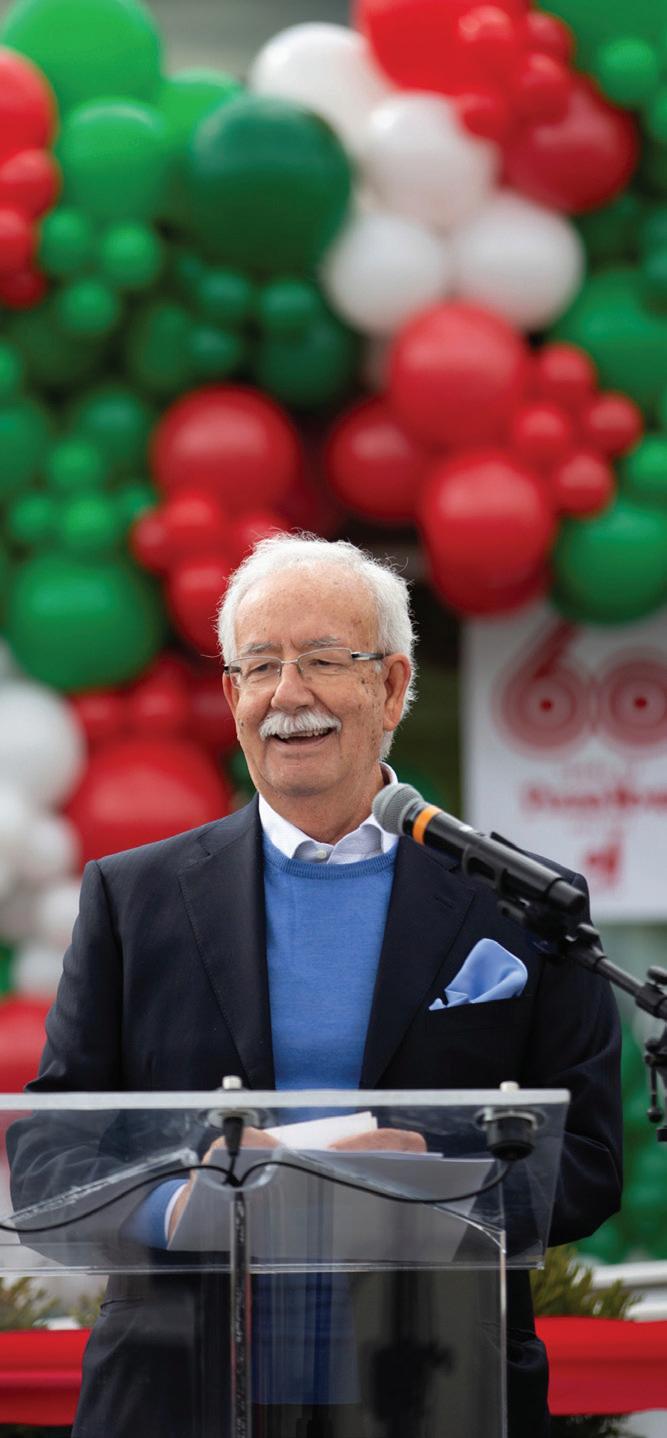
3 minute read
ArE You rEADY to BE A Fr AnCHISEE?
When buying a franchise, you are getting a “business in a box” that comes complete with a variety of resources to assist franchises in becoming successful. The allure of stepping into a proven business model, backed by a recognized brand and supported by an established network, is understandably strong; however, becoming a franchisee is not a decision to be taken lightly. i t demands careful introspection, thorough research, and honest selfassessment.
sO, are yOU ready TO Be a franchisee? LeT’s exPLOre whaT iT Takes
a Passion for the Brand
successful franchisees have more than just a passing interest in the brand they represent. They are passionate advocates who believe in the products or services they offer. You must believe in the company’s values and mission and be enthusiastic about promoting them. i f you don’t have a genuine affinity for the franchise’s product or services, it will be challenging to maintain the motivation needed to persevere through the inevitable ups and downs of business ownership.
Financial Readiness
Opening a franchise requires a significant financial investment. costs include the initial franchise fee, setup costs, inventory, construction, and working capital to run the business until it becomes profitable.
Understanding your financial readiness, ability to absorb potential losses, and access to funding options is crucial. a good franchisee should have the financial resources to start the franchise and sustain it until it becomes profitable. having 3-5 months of funds available for living and other interim expenses is generally recommended.
Willingness To Follow A System
Franchising is built on the concept of uniformity and adherence to established systems. consistency is the key to success. While the franchise model offers a proven path to success, it requires a willingness to follow the franchisor’s guidelines. While creativity and innovation have their place, straying too far from the proven model will undermine your success. i n fact, the day you begin to change the system is when you will start losing money. remember, you bought the franchise for the system, so follow it. successful franchisees understand the importance of these systems and are willing to adhere to them.
Willingness To Change
Markets and customer needs change over time. a good franchisee is open to learning, adapting, and evolving to meet these changes. remember, while these are common characteristics of successful franchisees, the specific requirements can vary depending on the franchise brand and its industry. i t’s always a good idea to thoroughly research the franchisor’s requirements and speak with existing franchisees before deciding.
Business acumen
While many franchisors provide robust training programs, having a basic understanding of business principles can be highly beneficial. skills in areas such as management, marketing, accounting, and customer service will serve you well as a franchisee. Understanding business fundamentals such as finance, marketing, customer service, and operations is critical. even though a franchise comes with a proven business model, knowing how to manage all aspects of a business will help ensure success. The franchisor’s training program will teach you how to operate the system but does not provide business training.
People skills
as a franchisee, you’ll need to wear many hats. among the most important is that of a leader. The ability to hire, train, motivate, and manage a team is critical to the success of your franchise. also, excellent customer service skills can help you build strong customer relationships. Franchisees often need to recruit, train, and manage a team. strong leadership and people skills can help create a positive and productive work environment. similarly, excellent customer service skills will help establish a loyal customer base.
Resilience
Owning a franchise can be a demanding endeavor. There will be long hours, highpressure decisions, and inevitable setbacks. a successful franchisee is resilient, able to bounce back from adversity and stay focused on their goals. running a franchise can be challenging, and setbacks are inevitable. The ability to remain resilient, learn from challenges, and persist in the face of adversity are hallmarks of a successful franchisee.
Commitment
Last but not least, a franchise is a longterm investment. successful franchisees are committed to the franchise, their employees, and their customers and are willing to put in the time and effort required to make it successful.
i f, after reading this, you feel that you tick most, if not all, of these boxes, then congratulations! You might just be ready to embark on the exciting journey of becoming a franchisee. remember, while this checklist provides a good starting point, it’s equally important to conduct thorough research, talk to existing franchisees, and consult with professionals before making a final decision. here’s to your franchising success!










